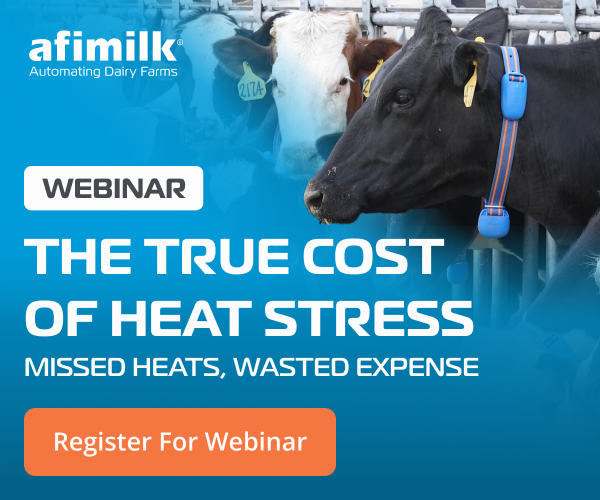Rebranding campaign includes limited-time free trial for producers
Plus, organic co-op testing a seaweed additive to reduce enteric emissions
Connecterra.ai is relaunching its brand to producers and including a free trial period. The company sold its monitoring tag business to Datamars this spring, and it has now pivoted to focusing on its artificial intelligence business. The company aims to transform data into actionable insights to help producers improve productivity and sustainability.
The company’s free trial offer is “no strings attached,” says Julie Larson, the company’s U.S. sales director. Producers who sign up will gain access to the company’s online portal and be given the opportunity to onboard their data for free for three months. No credit card is required to sign up.
Producers agree to the platform’s user license agreement and then can import their own herd management data to test drive the company’s dairy data analysis and prediction experience. At the end of the trial period, producers will have to opt into a service plan to be able to continue using the service.
See a preview of the company’s retooled technology below:
The free offer ends Oct. 1. For more information, visit here.
AfiMilk (Sponsor)
This summer’s record temperatures had dairy herds struggling to maintain performance and normal reproductive cycles. Join us for a webinar about how to reduce repro costs after times of heat stress. Register here.
Organic co-op testing a seaweed additive to reduce enteric emissions
U.S. organic co-op Organic Valley is currently working with a Hawaii-based startup to feed an organic seaweed additive to the University of Minnesota’s research herd of dairy cows. The additive, called SeaGraze, is a strain of Asparagopsis taxiformis and is cultivated by a company called Symbrosia. Symbrosia recently received USDA organic certification for its seaweed cultivation methods. The university trial will further validate the additive’s affect on reducing enteric emissions.
“Organic Valley farmers have always searched for innovative ways to care for their animals and the earth. We see the potential for SeaGraze by Symbrosia to help reduce the carbon footprint of dairy while seamlessly integrating into our award-winning carbon insetting program,” said Nicole Rakobitsch, director of sustainability at Organic Valley.
The company claims it will soon become the first cooperative to offer direct farmer payments for carbon reduction and removal efforts, such as feeding seaweed additives to decrease enteric-methane-emissions. Who will pay farmers to include such additives has been an industry topic of discussion.
“Natural options that substantially reduce enteric methane emissions and pay farmers to do so are rare, but we are building those platforms with the help of innovators like Symbrosia,” Rakobitsch says.
Read more about the partnership here.
Onfarm Solutions (Sponsor)
Teatwand has been partnering with dealers and farmers for over 15 years, providing award-winning teat spraying technology that reduces labor costs and protects cows from mastitis. Learn more here.
‘Data concerns still need to be addressed’
A recent article by Business Insider highlights one of the concerns about the advancement of cow technology that still lingers in my mind – data ownership. The article reiterates that the U.S. requires only voluntary data agreements between ag-tech companies and producers. The regulations related to these agreements are not standardized. While not fun, reading user license agreements (ULAs) is still the best practice to confirm what data you will be giving up. If you’re not comfortable with what is in the agreement, do not use the technology provider. That’s that the only proven way you can make sure you still “own your data.”
Read the full article here.
This article also mentions one of the cow tech community’s own Andy Lenkaitis.
Reading about Andy brought about lots of memories. He was one of the first cow tech interviews I did. (Listen to the podcast I recorded with him several years ago.) That interview was before The Cow Tech Report had officially launched, but it was the unofficial beginning of specialized reporting on cow technologies that were starting to emerge at the time.
3 questions to answer if considering milk meters for your parlor. Read why they matter here.
Dairy profit projections from ZISK
Projected profitability for
Projected profitability forthe next 12 months for two dairy herd sizes DECREASED in recent profit projections from ZISK.
ZISK is a profit-projection smartphone app that tracks individual dairy farm profitability based on current CME board prices. Projections for a 1,000-cow dairy producing an average of 80 pounds of milk per cow and a 2,500-cow dairy producing an average of 85 pounds of milk per cow are provided.
12-month dairy farm profit projections (as of Sept. 14, 2023):
1,000-cow dairy = $452,000 (DOWN about $30,750 in the last two weeks)
2,500-cow dairy = $1.866 million (DOWN about $99,000 in the last two weeks)






